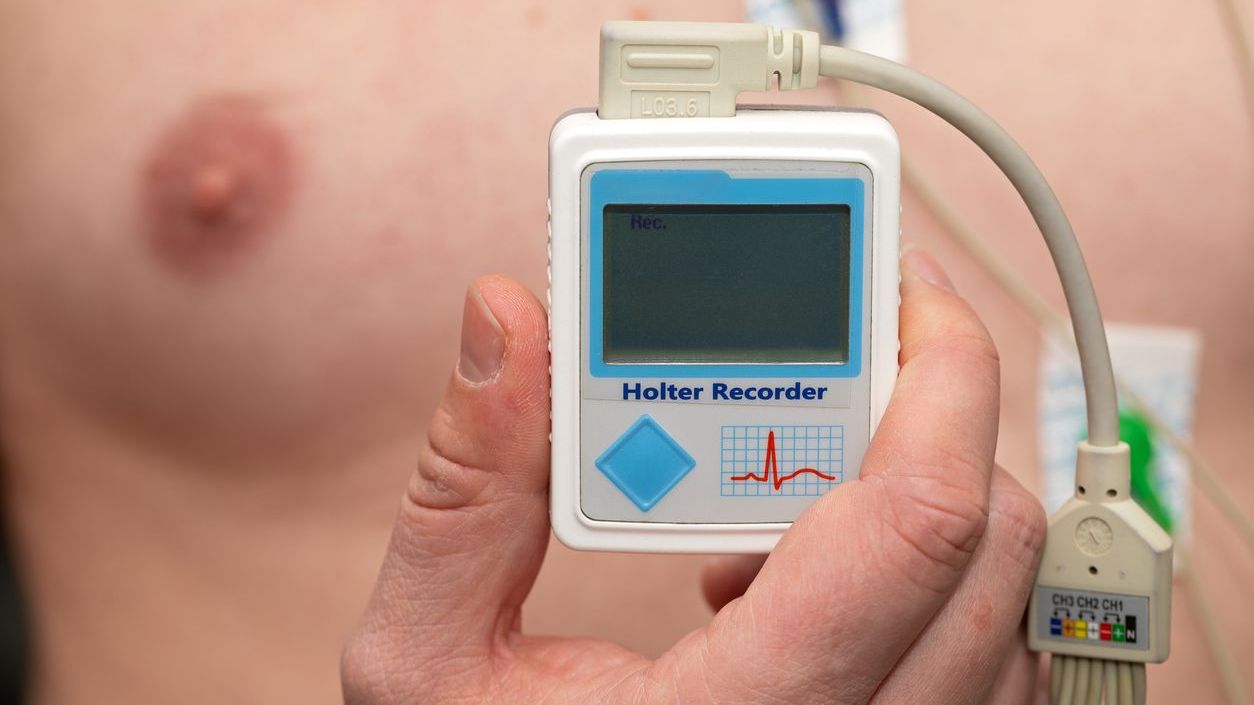Holter Monitor
Last updated: January 12th, 2025

A Holter monitor is a portable device used to continuously monitor and record a person's heart activity. This heart activity is specifically their electrocardiogram (ECG). The Holter device records the ECG over an extended period, typically 24 to 48 hours.
What does it consist of?
The Holter monitor consists of:
- electrodes that are attached to the chest and connected to
- a small recorder worn around the waist or shoulder
The monitor records the electrical signals produced by the heart. It captures data during normal daily activities, sleep, and episodes of symptoms. Such episodes include palpitations, dizziness, or fainting.
Why is wearing a Holter prescribed?
Holter monitoring is able to detect and diagnose various heart rhythm abnormalities; such as arrhythmias or irregular heartbeats. These may not be captured during a standard ECG performed in a doctor's office.
By continuously recording heart activity over an extended period of time, Holter monitoring provides a more comprehensive assessment of the heart's electrical activity and rhythm disturbances. This helps healthcare providers identify abnormal patterns and determine appropriate management strategies.
Hence healthcare providers prescribe Holter monitoring to:
Detect Arrhythmias. Holter monitoring helps identify and/or distinguish various types of arrhythmias, including:
- atrial fibrillation,
- bradycardia, slow heart rate,
- tachycardia, fast heart rate, and
- other rhythm disturbances.
These may contribute to symptoms or increase the risk of adverse cardiovascular events.
Evaluate Symptoms. For patients experiencing symptoms suggestive of heart rhythm abnormalities, such as palpitations, lightheadedness, or fainting, Holter monitoring can provide valuable information about the underlying cause and severity of these symptoms. And correlating them with specific changes in the ECG to confirm the hypothesis.
Assess Treatment Response: Holter monitoring can assess the effectiveness of medications, interventions, or lifestyle modifications aimed at managing arrhythmias and maintaining normal heart rhythm.